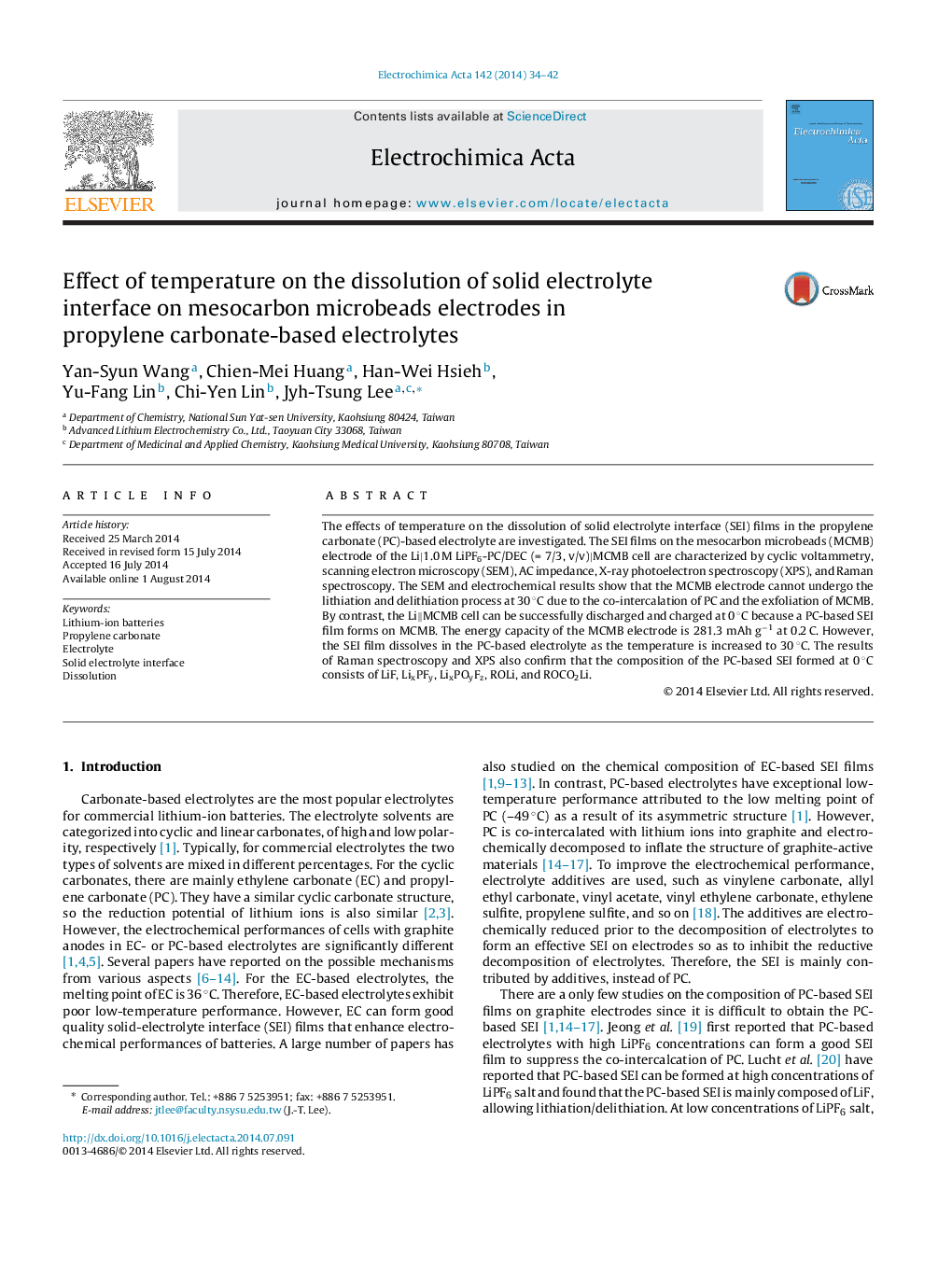| Article ID | Journal | Published Year | Pages | File Type |
|---|---|---|---|---|
| 6613135 | Electrochimica Acta | 2014 | 9 Pages |
Abstract
The effects of temperature on the dissolution of solid electrolyte interface (SEI) films in the propylene carbonate (PC)-based electrolyte are investigated. The SEI films on the mesocarbon microbeads (MCMB) electrode of the Li|1.0 M LiPF6-PC/DEC (= 7/3, v/v)|MCMB cell are characterized by cyclic voltammetry, scanning electron microscopy (SEM), AC impedance, X-ray photoelectron spectroscopy (XPS), and Raman spectroscopy. The SEM and electrochemical results show that the MCMB electrode cannot undergo the lithiation and delithiation process at 30 °C due to the co-intercalation of PC and the exfoliation of MCMB. By contrast, the Liâ¥MCMB cell can be successfully discharged and charged at 0 °C because a PC-based SEI film forms on MCMB. The energy capacity of the MCMB electrode is 281.3 mAh gâ1 at 0.2 C. However, the SEI film dissolves in the PC-based electrolyte as the temperature is increased to 30 °C. The results of Raman spectroscopy and XPS also confirm that the composition of the PC-based SEI formed at 0 °C consists of LiF, LixPFy, LixPOyFz, ROLi, and ROCO2Li.
Related Topics
Physical Sciences and Engineering
Chemical Engineering
Chemical Engineering (General)
Authors
Yan-Syun Wang, Chien-Mei Huang, Han-Wei Hsieh, Yu-Fang Lin, Chi-Yen Lin, Jyh-Tsung Lee,
